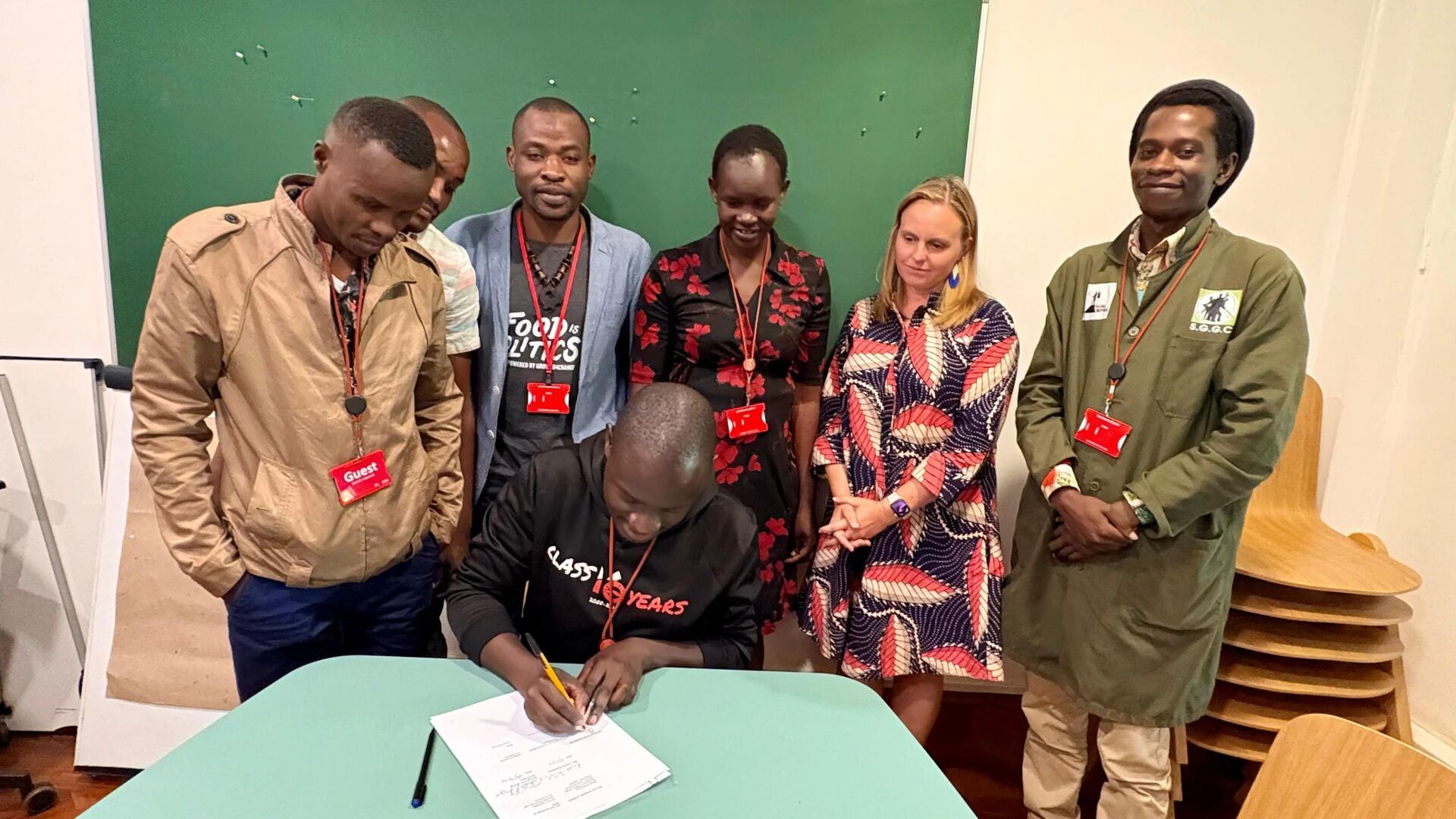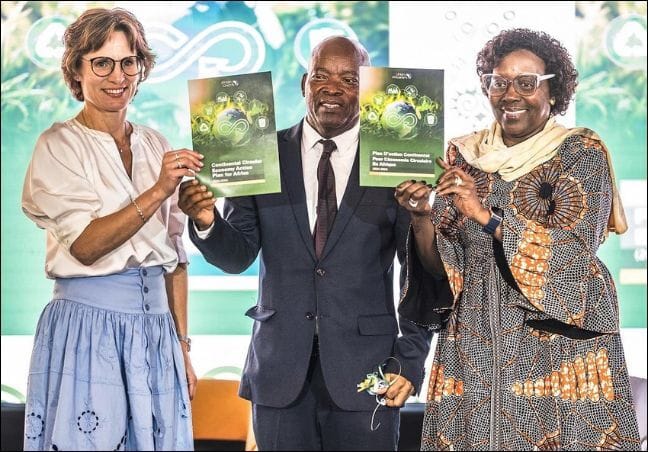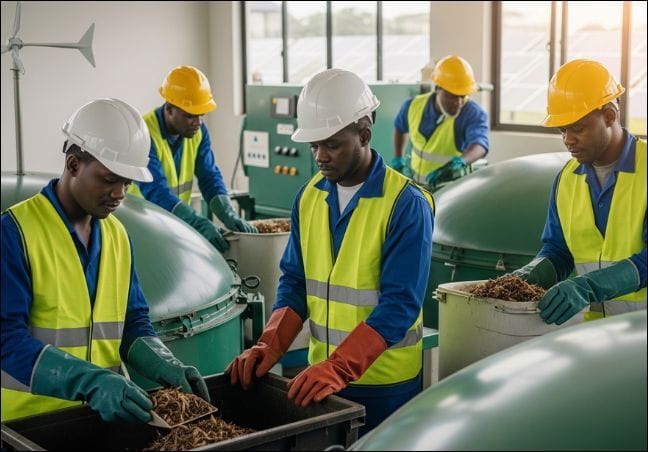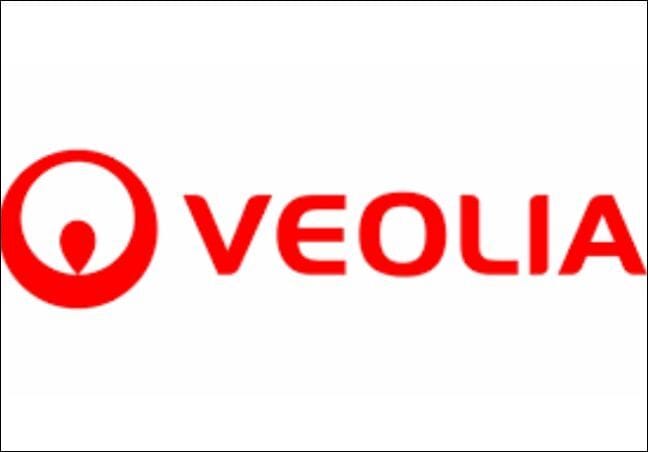- Circular Rising
- Posts
- Africa’s circular future takes shape with new continental action plan
Africa’s circular future takes shape with new continental action plan
Dear subscriber, this is a prototype. Please help us with feedback. Just press reply.
The transition to a circular economy took a major step forward with the launch of the Continental Circular Economy Action Plan (CEAP) for Africa. Unveiled jointly by the African Union and European Union, the plan provides a ten-year framework to advance sustainability, drive economic growth and improve resource efficiency across the continent. |
Fragmented circular economy policies across African countries have slowed progress, creating regulatory uncertainty and inefficiencies that hinder investment, cross-border trade and the scaling of local circular initiatives.
The CEAP aims to address this by harmonising policies, mobilising financing and coordinating regional action, laying the groundwork for a more connected, investable and inclusive circular economy.
Our take: Cities should be prioritised as hubs for piloting scalable circular infrastructure and local policy innovation… Read more (2 min)
Southern Africa is emerging as the continent’s circular economy hiring hotspot, with 15 of 35 advertised roles based in South Africa and Zambia. South Africa leads with 14 listings, making it the clear frontrunner. The roles span waste, water, recycling and sanitation, reflecting continent-wide momentum toward circular implementation. |
A diverse mix of companies is hiring, from global players like Veolia and UN agencies to regional leaders like Jospong and Interwaste.
French multinational environmental services corporation Veolia stands out as the top recruiter, accounting for 10 of the 35 circular economy roles currently open across the continent. The company is hiring for a range of positions in Egypt and Morocco.
Job board: Explore the latest openings across Africa’s circular sector here (2 min)
French environmental services firm Veolia has expanded modestly across the continent over the past year, but what sets it apart is the strength of its talent. LinkedIn data shows that 48% of its employees hold a Master’s degree, well above the industry average of 37%, highlighting a deliberate tilt toward advanced technical and managerial expertise. |
PhD holders make up 8% of Veolia’s workforce, compared to a sector average of 6%. Clearly there is a preference for highly credentialled professionals.
The share of Veolia employees with MBAs and Associate’s degrees closely matches industry benchmarks. It seems the French prefer academic qualifications over vocational ones.
Our take: As Africa’s circular economy evolves, agility could matter as much as control…Read more (2 min)
___________________


Waste pickers in Kenya sign a training agreement with Danish government
Events
🗓️ Celebrate at the 2025 SAPRO Recycling Awards in South Africa (August 27)
🗓️ Attend the Plastics Recycling Show Middle East & Africa in Dubai (September 15)
🗓️ Network at the Africa International E-Waste Conference in Kenya (October 16)
🗓️ Participate in the Nature and Circularity Week in South Africa (October 20)
Various
🏥 USAID departure leaves Ugandan hospital struggling with waste
💣 South Africa can learn from Japan’s experience of toxic waste dumping
🤖 Waste sorting robot market projected to reach $59.34 billion by 2034
♻️ SCZone and Nile Plastic Recycling Company to establish a PET recycling facility
💉 Africa urged to use non-thermal methods for medical waste disposal
🔥 Open burning of plastic is an escalating public health threat, say experts
💰 MSC funds net-recycling project within South Africa’s hake trawl fishery
🤝 SEI to support bioeconomy SMEs in Kenya through Kenya-Swedish collaboration
⛔ Pure Earth, EPA inaugurate technical working group on lead poisoning
Seen on LinkedIn
Markus Maierhofer, CEO of FIMA Industries, says, “True circularity must include those who already contribute to the system — especially informal actors like waste pickers. Inclusion is not just a social issue, but a strategic necessity for building resilient waste management models across Africa.”


